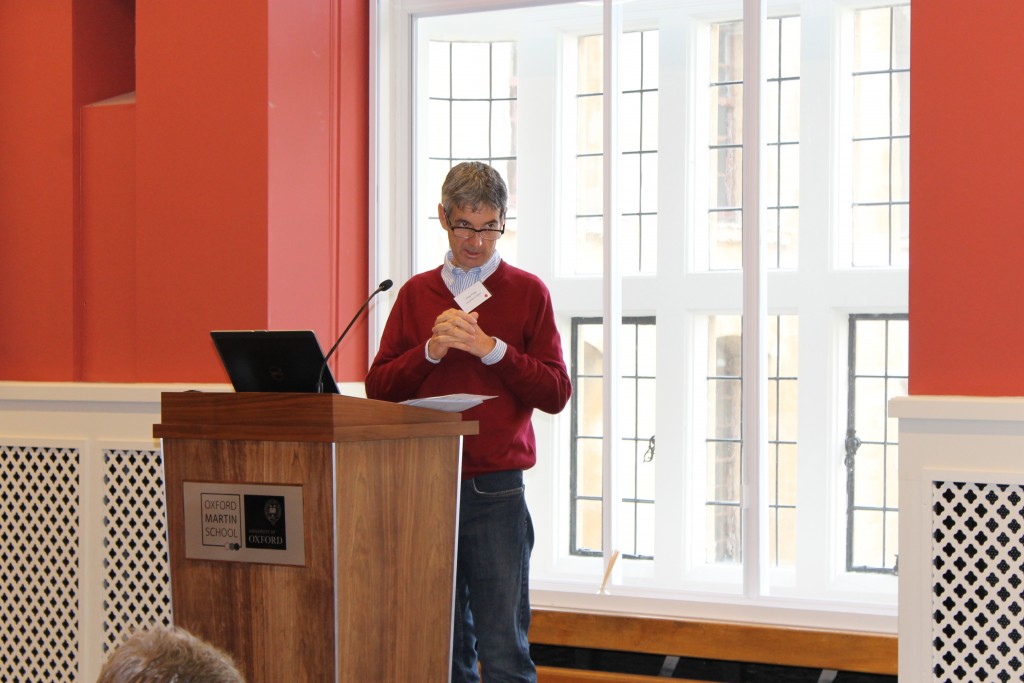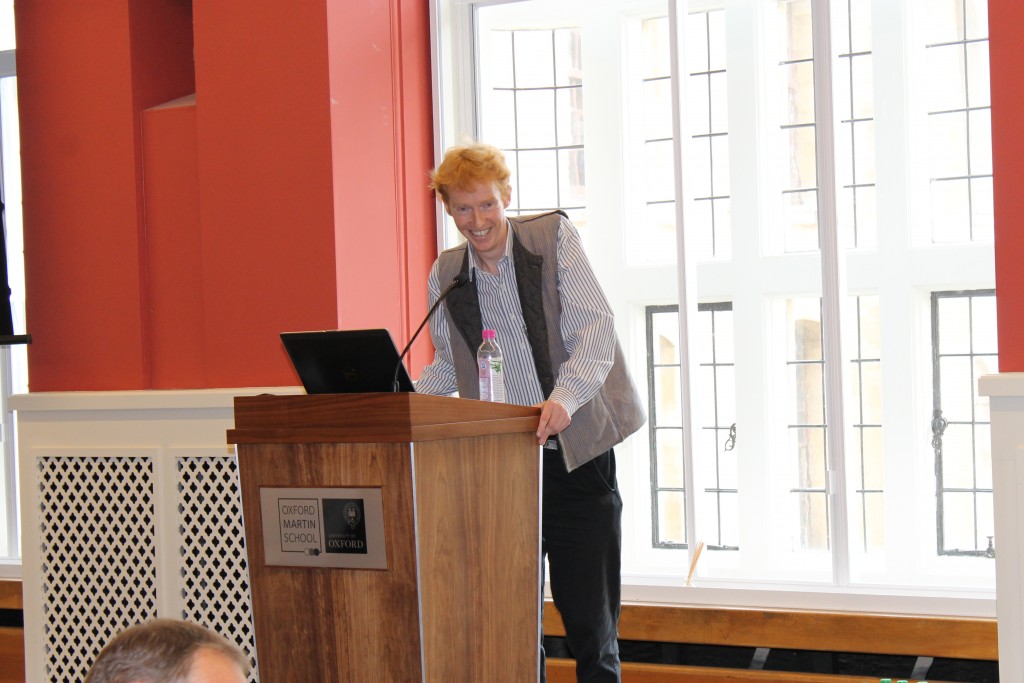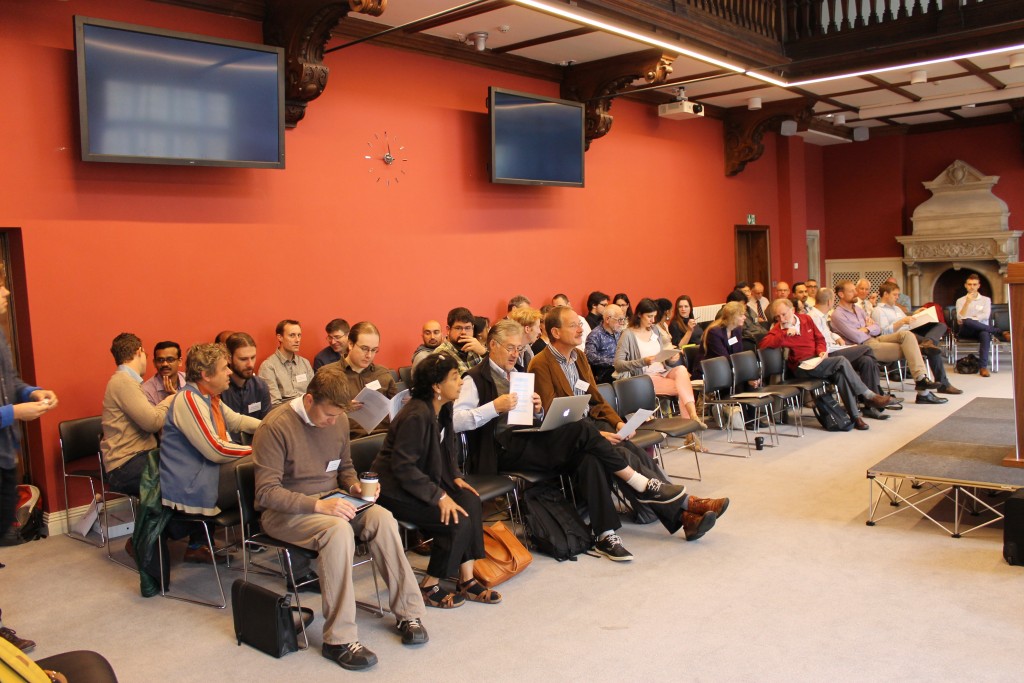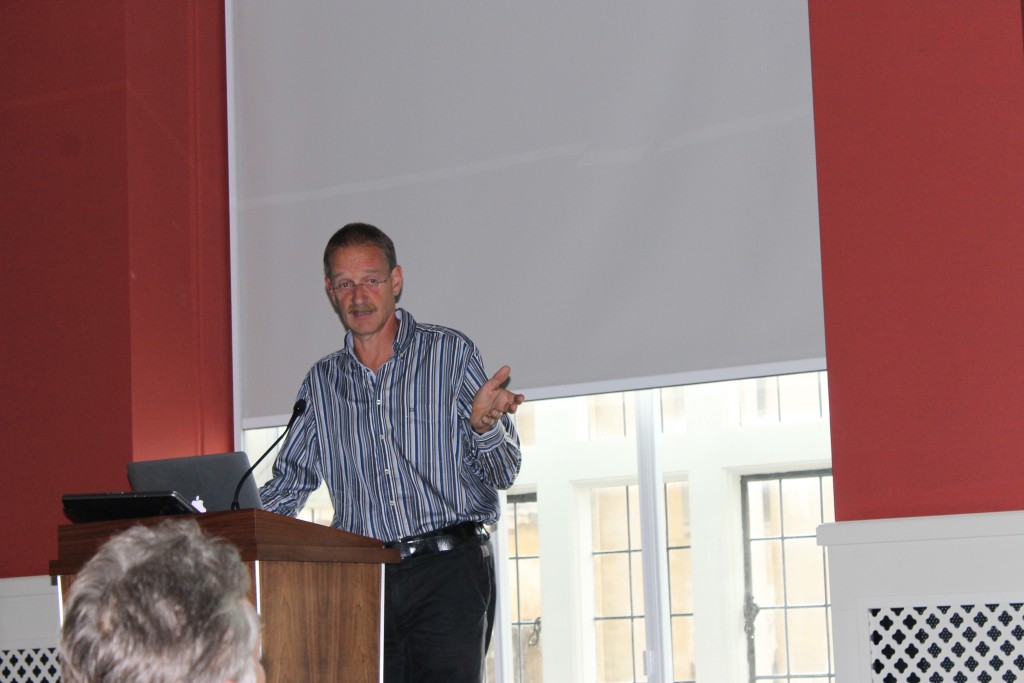 Somerville’s Senior Research Fellow in Plant Sciences, Philip Poole, welcomed the world’s leaders in the field of nitrogen metabolism last month for a symposium on tackling the global nitrogen crisis.
Somerville’s Senior Research Fellow in Plant Sciences, Philip Poole, welcomed the world’s leaders in the field of nitrogen metabolism last month for a symposium on tackling the global nitrogen crisis.
The meeting, titled “Tackling the nitrogen crisis; what are the solutions?” was held at the Oxford Martin School on Friday the 18th of September 2015 with a symposium dinner at Somerville and networking drinks and a buffet supper in Somerville’s Flora Anderson Building the day before.
Poole and John Howieson first discussed the idea for the meeting over a year ago and the BBSRC-NSF funded Nitrogen Ideas Lab Grantholders’ Meeting in the UK in September, involving key scientists from UK and USA working on nitrogen, made an opportunity to bring people together that was too good to miss. “Our intention is to stimulate all participants, who come from a wide range of disciplines, to think about the broader impacts of their work,” said Poole in publicity for the event.
In addition to Philip Poole, who chaired and spoke at the event, Alfred Gathorne-Hardy, Research Director of the Oxford India Centre for Sustainable Development spoke on the ecosystem services of legumes – plants that work with bacteria to convert the inert nitrogen in the air into usable nitrogen for the production of protein – in India.

Alfred Gathorne-Hardy, Research Director of the Oxford India Centre for Sustainable Development
Other speakers were Jean-Michel Ané from the University of Wisconsin-Madison, Jorg Schumacher from Imperial College London, Ray Dixon, Giles Oldroyd and Simon Griffiths from the John Innes Centre, David Fowler and Mark Sutton from the NERC Centre for Ecology and Hydrology (CEH), Ken Giller from Wageningen UR in the Netherlands, Charles Godfray from Jesus College, Oxford, John Howieson from Murdoch University in Perth, Australia and Michael Udvardi from the Samuel Roberts Noble Foundation in Oklahoma.

Audience at the symposium
“Considering the magnitude of global reactive nitrogen in many forms in soil, water and the atmosphere, international action is required,” Professor David Fowler of CEH, in regard to the extent of the crisis. “Current legislation will not deliver the scale of reductions globally for recovery from the effects of reactive nitrogen deposition on sensitive ecosystems, or a decline in emissions of nitrous oxide (a major greenhouse gas and air pollutant) to the global atmosphere.”
Ken Giller from Wageningen UR in the Netherlands
Themes considered at the symposium were:
- How bad is the nitrogen crisis?
- Agricultural practices, their social and economic context
- Engineering and natural solutions
- Nitrogen use efficiency
For further information click here or contact alison.east@plants.ox.ac.uk
